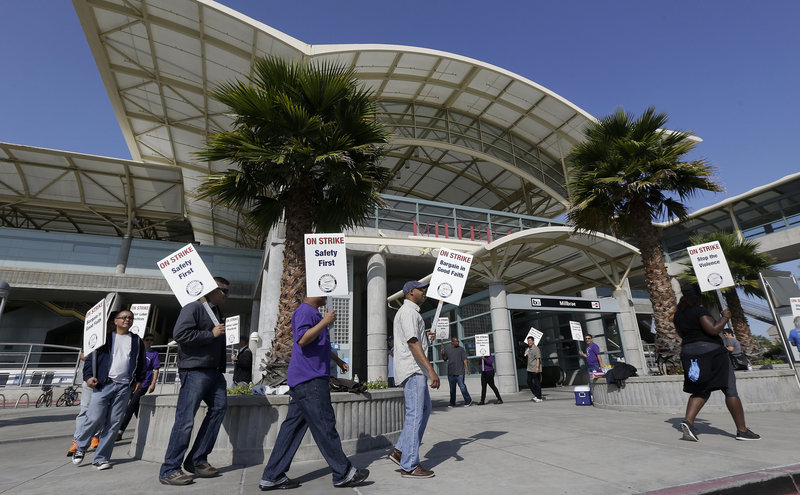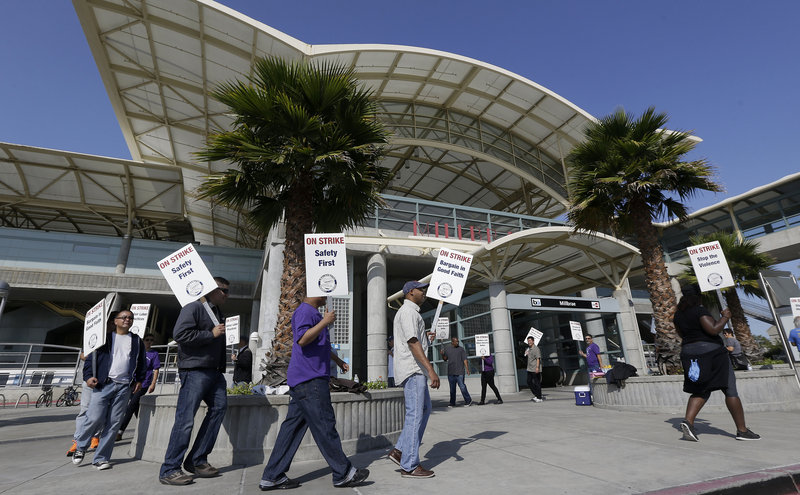OAKLAND, Calif. – San Francisco Bay area commuters sweated in crowded buses, shivered on loaded ferries or inched through crowded freeway traffic on Monday after hundreds of train workers demanding higher wages went on strike and the region’s heavily used rail system ground to a halt.
The walkout derailed hundreds of thousands of riders who use the nation’s fifth-largest rail system each day, forcing them to find other means of transportation in the second-most congested region in the country.
Morning rush hour did not come to a standstill as feared, and some travelers who used carpool lanes and other options added relatively little time to their commutes.
Later, evening commuters lined up early for ferries, buses and casual carpools to get a jump on the heavy traffic.
“It’s been an absolute nightmare for some commuters, but we didn’t see total gridlock,” said Stuart Cohen, executive director of TransForm, an Oakland-based nonprofit organization focused on public transportation and walkable communities. “Everybody got so worried about potential congestion they found an alternative,”
Two of the largest unions representing Bay Area Rapid Transit workers went on strike early Monday after their contract expired Sunday night. No new talks were scheduled. It was the first strike by BART workers since a six-day walkout in 1997.
Caltrans spokesman Bob Hahn said the biggest delay added 25 minutes to a stretch of Highway 80 between the Carquinez Bridge and the San Francisco-Oakland Bay Bridge. The heaviest traffic, he said, was to the south along a stretch of Highway 880, which was twice as heavy as a week ago.
The striking unions and management reported being far apart on key sticking points that included salary, pensions, health care and safety
The unions, which represent nearly 2,400 train operators, station agents, mechanics, maintenance workers and professional staff, want a 5 percent raise each year over the next three years.
BART said train operators and station agents in the unions average about $71,000 in base salary and $11,000 in overtime annually. The workers also pay a flat $92 monthly fee for health insurance.
BART spokesman Rick Rice said the agency had upped its original offer of a 4 percent pay increase over the next four years to 8 percent. The proposed salary increase is on top of a 1 percent raise employees were scheduled to receive Monday, Rice added.
Copy the Story Link
Send questions/comments to the editors.




Success. Please wait for the page to reload. If the page does not reload within 5 seconds, please refresh the page.
Enter your email and password to access comments.
Hi, to comment on stories you must . This profile is in addition to your subscription and website login.
Already have a commenting profile? .
Invalid username/password.
Please check your email to confirm and complete your registration.
Only subscribers are eligible to post comments. Please subscribe or login first for digital access. Here’s why.
Use the form below to reset your password. When you've submitted your account email, we will send an email with a reset code.